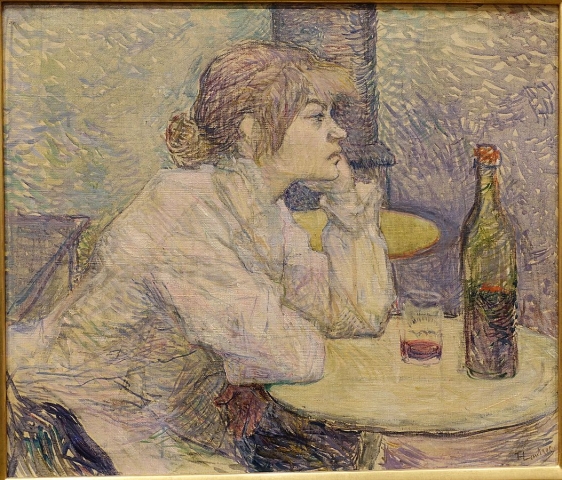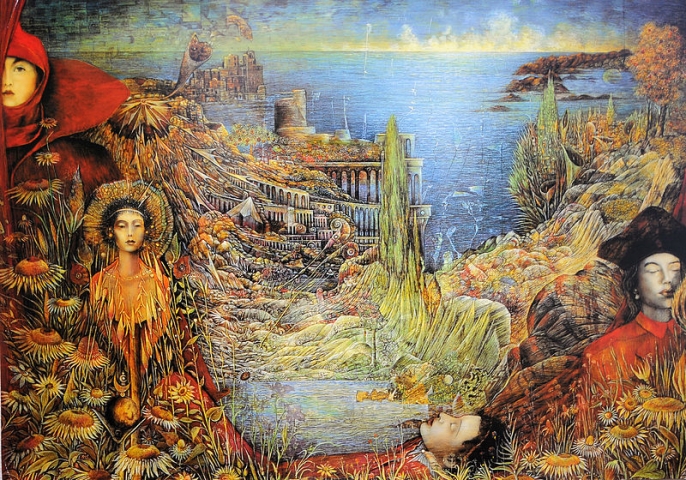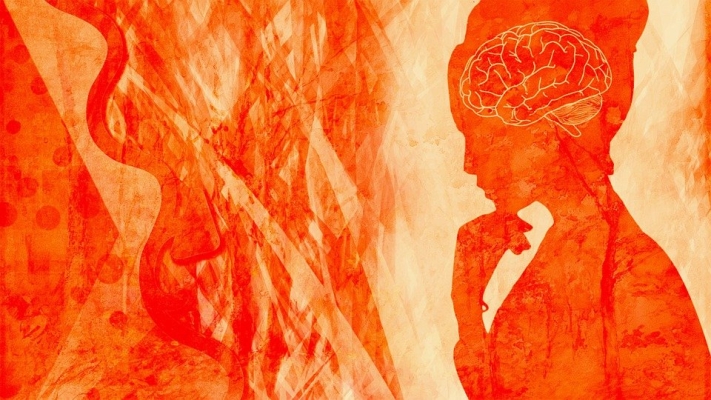Introduction to the Pharmaceutics of Psychedelics – Scientific Information for interested Psychonauts – Part 1
To achieve a full understanding of psychedelics and drugs, one can not only pop pills and go on trips; no, you also have to gain some knowledge in basic pharmacology. Pharmacology is the study of the effects of drugs on living organisms, consisting of biological, chemical, and biochemical parts. The single most important term for someone who has no knowledge about this is: neurotransmission.
What is Neurotransmission?
Maybe you’ve heard the term neurotransmitter before. These chemicals are responsible for transmitting messages in the brain. Via neurotransmission, our brain operates movement, emotions, learning & memory… almost everything that you can think of. Let’s start with looking at the most important neurotransmitters first:
The Different Neurotransmitters
Dopamine – most people are familiar with that one. It is especially important in reward. It is released when we do something good, like eating nice food or having sex. What most people don’t know: Dopamine is also extremely important for Motivation. In an experiment where the dopamine transmission in rat brains was blocked, the rats were so unmotivated that they could not get up to eat, even if they were hungry. This neurotransmitter is the primary target of psychostimulants like Cocaine and amphetamine, and antipsychotics (schizophrenia medication). To little dopamine? Sirius has some help with that: We sell natural extracts containing L-dopa (the chemical precursor of dopamine) that boost your dopamine levels after a long night of partying.
Norepinephrine – also known as noradrenalin, this neurotransmitter is chemically similar to dopamine and is involved in a lot of processes that involve movement and excitation.
GABA – the primary inhibitory neurotransmitter is (with too little of it in the brain) involved in anxiety. That’s why anxiolytic medications like benzodiazepines all increase the GABA action in the brain
Acetylcholine – the neurotransmitter that operates at the neuromuscular junction is important in a lot of processes, for example learning & memory.
The following two neurotransmitters are especially important for understanding the mechanisms behind psychedelics:
Serotonin / 5HT – one of the, if not the most versatile neurotransmitter. There have been 14 receptors identified for serotonin! It is involved in for example mood regulation, feeding, reward, anxiety, aggression… and much more! This neurotransmitter is the one targeted by most of the (classical) psychedelics like LSD and psilocybin. If you suffer from depressive symptoms, it might be the case that you have too little serotonin in your system. Luckily Sirius also has something for that: The Mood Doctor or the Griffonia Extract are only some examples!
Glutamate – this amino acid neurotransmitter is active at more than 90% of the synapses and is primarily responsible for excitation. It has an important role in neural development, learning & memory, and drug tolerance & dependence
The following table gives a good overview over these neurotransmitters, their function, their receptors, and the drugs that target them:
|
Neurotransmitter |
Function |
Receptors |
Drugs |
|---|---|---|---|
|
Dopamine |
Reward / motivation |
D1-D5 |
Psychostimulants (agonists) e.g.: Cocaine & (Meth)amphetamine, Antipsychotics (antagonists) |
|
Norepinephrine |
Similar to dopamine, excitation |
Alpha1 & alpha2; beta 1, 2 & 3 |
|
|
GABA |
Inhibition |
GABA A, GABA B (each have subtypes!) |
Benzodiazepines, Barbiturates |
|
Acetylcholine |
Neuromuscular transmission, learning & memory |
Nicotinic & Muscarinic |
Alzheimer’s medication |
|
Serotonin / 5HT |
Many functions, e.g.: mood regulation |
14 subtypes! Most important for psychedelics: 5HT2A |
Antidepressants (reuptake inhibition), classical hallucinogens (LSD, Psilocybin, Mescalin)(agonists) |
|
Glutamate |
Excitation, Learning & Memory |
NMDA, AMPA, Kaitane |
Dissociatives (e.g.: Ketamine) (NMDA antagonists) |
How do Drugs work?
Two terms that were repeatedly mentioned to describe drug actions are Agonism & Antagonism, so let me give you a quick explanation:
Agonists bind to a Receptor and facilitate the action the Neurotransmitter accounts for. In other words, a serotonin agonists increases serotonin neurotransmission, a dopamine agonist increases dopamine neurotransmission, and so on…
Antagonists are the exact opposite. When they bind to a receptor, they block it and thereby inhibit the action of the relevant neurotransmitter. A glutamate antagonist decreases glutamate neurotransmission, a GABA antagonist decreases GABA neurotransmission…
There is another possible form of drug action, called reuptake Inhibition. Some examples of reuptake Inhibitors are Ritalin (for dopamine) and antidepressants (for serotonin). Because a full description of this would take too long, I provide you with a link for a video that gives a concise explanation on the example of serotonin reuptake Inhibitors:
https://www.youtube.com/watch?v=uiXcAbrO8kU&ab_channel=NeuroscientificallyChallenged
(This channel is really great if you want to learn more about neurotransmission!)
Okay, this is enough theory for now. I do not want you to get bored! In my opinion, it is very useful to know about all of this, especially when you (occasionally) take drugs yourself: If you know which systems are used you can counteract the negative side effects of drugs better, and you are also able to better engage in safer use. A golden rule to always stick by is: do not mix drugs! If you want to take something to feel better, dance longer, become more social, or have a psychedelic experience, avoid taking anything that messes with your high. This accounts for drugs that effect the same as well as different neurotransmitter systems. Are you interested in legal alternatives to party drugs? Then check out the Sirius Smartshop! We offer a wide range of natural, healthy products that work in a similar way as common party drugs like Speed, Ecstasy (MDMA) or Cocaine. Stay safe!
Did you enjoy reading this article and do you like to write yourself? We are always looking for people who share our passion for natural products, who can also translate this into great texts. And we have an interesting reward for this. View all information for writers.
 Blog Smart Products
Suffering from a hangover? These products from the smartshop work best
In the aftermath of New Year, it is quite common for party people to suffer from a terrible hangover. What is the best thing to do against a hangover? [..]
25-12-2022
7 minutes
Blog Smart Products
Suffering from a hangover? These products from the smartshop work best
In the aftermath of New Year, it is quite common for party people to suffer from a terrible hangover. What is the best thing to do against a hangover? [..]
25-12-2022
7 minutes
 Blog Magic Mushrooms
New Magic Truffles! Buy online Tampanensis, Atlantis, Mexicana and Galindoi
We welcome no less than four new magic truffles to our assortment! Atlantis, Tampanensis, Mexicana, Galindoi! These magic truffles are exclusively for [..]
12-10-2021
9 minutes
Blog Magic Mushrooms
New Magic Truffles! Buy online Tampanensis, Atlantis, Mexicana and Galindoi
We welcome no less than four new magic truffles to our assortment! Atlantis, Tampanensis, Mexicana, Galindoi! These magic truffles are exclusively for [..]
12-10-2021
9 minutes
 Blog Smart Products
Q&A Sirius smartshop Maastricht and Roermond
For over 25 years Sirius has been the place to buy legal magic truffles, mushroom grow kits, cannabis seeds, CBD oil and much more. Do you like to exp [..]
Blog Smart Products
Q&A Sirius smartshop Maastricht and Roermond
For over 25 years Sirius has been the place to buy legal magic truffles, mushroom grow kits, cannabis seeds, CBD oil and much more. Do you like to exp [..]













 Nederlands
Nederlands Italiano
Italiano Deutsch
Deutsch Français
Français Português
Português Español
Español Polski
Polski